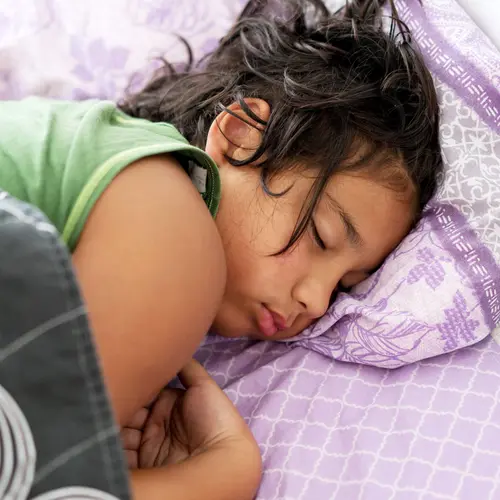Your baby drops a cracker on the floor. Does the 5-second rule apply, or do you quickly throw it away?
Or could those germs actually be good for them? Well, kind of.
There's a belief that says exposing people -- especially babies and young children -- to different kinds of germs early in life can keep them from developing illnesses like asthma, allergies, and other diseases that affect the immune system. The theory, called the “hygiene hypothesis,” is that our bodies need "practice" fighting germs.
Looks like that message has gotten through. In a survey by the Hygiene Council, 77% of moms with kids under 5 thought their children should be exposed to germs to help build stronger immune systems. The Hygiene Council, a group of health experts focused on hygiene, is funded by an educational grant from Reckitt Benckiser, a WebMD sponsor.
"In the 20th century we started changing the way we live. We live in very clean boxes. Water is immaculate. Food is nearly sterile. Exposure to bacteria and soil is less common," says Joel Weinstock, MD, chief of gastroenterology and hepatology at Tufts Medical Center and professor at Tufts University. But being super clean may not be good for growing immune systems.
“Certain diseases that were essentially unknown in the 18th century and earlier are becoming common now." But we’re also not dying from cholera and the plague. So does this mean we can stop washing our hands and can eat food off the floor? Not so fast.
"We're not encouraging kids to go out and eat dirt or forgo vaccinations,” says Kathleen Barnes, PhD. “But there's probably something to be said for not sheltering children from exposure to routine (germs) during childhood and the sort of overboard way we go."
But that doesn't mean you should throw cleanliness to the wind. According to the "old friends theory," which takes the hygiene hypothesis further, it's true that exposure to some friendly germs helps us. But we still have to limit being around germs that cause serious illnesses. So where should we draw the line?
What You Can Stop Worrying About
Pets
Barnes cites studies that show that kids who grow up around pets are less likely to get asthma. Kids in day care who are exposed to kids with colds and other germs are less likely to end up with allergies, asthma, and other health problems.
Sterilizing Everything
You can probably lay off all the antibacterial soaps and cleansers. Even the FDA is skeptical. They are asking antibacterial soap makers to prove that the products are more effective than regular soap. There are also questions about the safety of some of the ingredients, so there may be more risks than benefits. "The vast amount of types of bacteria and viruses and fungi that we see in everyday life don’t hurt us at all. They're just there," says Weinstock “Only a handful” are likely to make you sick, he says.
To get rid of germs when washing your hands, encourage your kids to lather up for as long as it takes to sing “Happy Birthday” twice.
Antibiotics
When your child is sick, you definitely want to go to the doctor to get them checked out. But many childhood illnesses are caused by viruses. Antibiotics won’t fight those or speed your little one’s recovery in those cases.
“The first response shouldn’t be to demand to put your child on an antibiotic, which will kill the good bacteria in order to fight the bad bacteria,” Barnes says. Good bacteria live in our guts, and we need them for digestion.
Also, if you use antibiotics too often, they might not work as well when you really need them.
Germs: Where to Fight
Even if you don’t have to stress about everything, there are some key things to focus on to keep your family healthy and happy. You can be "germ smart," say the experts, by sticking to some basics.
- Use separate cutting boards and utensils for produce and for raw meat, poultry, and seafood. Wash countertops, utensils, and cutting boards in hot, soapy water.
- Use a food thermometer. Cook whole meats to 145 F, ground meats to 160 F, and chicken and turkey to 165 F.
- Don't leave out food for more than 2 hours. Keep it to less than 1 hour when it is warm outside.
- Disinfect kitchen counters before and after preparing food. Use paper towels or sanitizing wipes.
- Disinfect bathroom surfaces often -- especially if someone in the house is sick.
Wash your hands often, including before and after preparing food, after going to the bathroom or handling diapers, after handling pets, and whenever they look dirty.
The 5-Second Rule
So is it really OK to pick up something and eat it when it hits the ground? The feelings on the 5-second rule are mixed.
A study by Clemson University researchers says 99% of bacteria are transferred the second something hits the floor. So if there's salmonella or other dangerous germs lurking on the ground, it's picked up instantly.
So take precautions like cleaning up chicken juice and follow other food safety basics. But Weinstock isn't that worried.
"I think you can extend the 5-second rule. I think if something falls on the floor on your home and you want to pick it up and eat it, I don’t think you're going to get sick,” he says. “There may be an ick factor. But it's not a problem. I think we can relax a bit."
"You don’t have to be too fastidious about your children, your house, your pets, the backyard. All this probably carries very low risk and some of these exposures may actually be healthy," says Weinstock. "Allow your kids some latitude to experience the world. As they grow up, with a little luck, they'll be less prone to some of these diseases."


